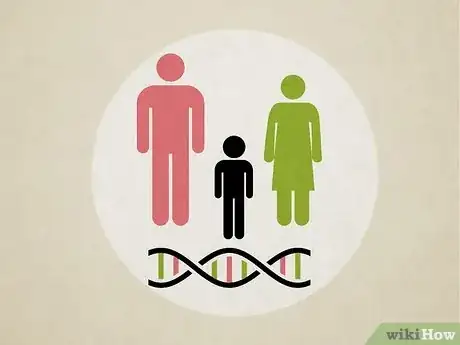This article was co-authored by Adam Dorsay, PsyD and by wikiHow staff writer, Danielle Blinka, MA, MPA. Dr. Adam Dorsay is a licensed psychologist in private practice in San Jose, CA, and the co-creator of Project Reciprocity, an international program at Facebook's Headquarters, and a consultant with Digital Ocean’s Safety Team. He specializes in assisting high-achieving adults with relationship issues, stress reduction, anxiety, and attaining more happiness in their lives. In 2016 he gave a well-watched TEDx talk about men and emotions. Dr. Dorsay has a M.A. in Counseling from Santa Clara University and received his doctorate in Clinical Psychology in 2008.
There are 11 references cited in this article, which can be found at the bottom of the page.
This article has been viewed 3,015 times.
Do you have someone in your life who seems self-absorbed and manipulative? Does this person put you down and use you for their own benefit? It’s possible you’re dealing with a malignant narcissist. We’re here with expert advice on how to recognize and understand a malignant narcissist. Additionally, we’ll give you comprehensive advice on how to handle them so you can take control in the relationship and protect yourself.
Steps
What causes malignant narcissism?
-
1Experts believe malignant narcissism can be partially genetic. One study even suggests that narcissism occurs in people who handle stress differently.[3] Many narcissists have family members who share the condition, but it’s unclear if this happens because of genetics or learned behavior.[4] Researchers are still investigating this disorder to help diagnose and treat it.
- It’s likely that malignant narcissism has a mix of causes.
-
2Indulgent, abusive, or controlling parents can trigger narcissism. Children who get everything they want and have few consequences may become narcissistic. On the other hand, abused children can develop low self-esteem and a desire to excel in the hopes that they can please their caregivers. In both cases, the kids can’t tolerate criticism and always expect the best, which are features of narcissism.[5]
- Indulged children may have trouble accepting consequences and often have an inflated self-esteem. On the other hand, abused children can develop narcissism as a way of dealing with their pain.
Signs of a Malignant Narcissist
-
1Malignant narcissists share the same symptoms as other narcissists. They’re more self-involved than other people and need a ton of attention. At the same time, they typically have a low self-esteem that they hope to hide. Look for the following narcissistic traits:[6]
- Entitlement.
- Self-importance.
- Arrogance and looking down on other people.
- Desire to take advantage of others.
- Preoccupations with success or prestige.
- Envy of others or a belief that others envy them.
-
2They also have the traits of Antisocial Personality Disorder. People with this disorder struggle to have healthy relationships and usually struggle with normal adult responsibilities. They view other people as a means to an end, so they’re okay with hurting people to get what they want. Watch for these signs that the person has Antisocial Personality Disorder:[7]
- Lacking empathy and remorse.
- Charming people to manipulate them.
- Lying.
- Ignoring right and wrong, or violating rules.
- Feelings of superiority.
- Impulsive, aggressive, or violent impulses.
- Failing to meet responsibilities.
- Refusing to acknowledge consequences.
How to Deal with Malignant Narcissism
-
1Keep your interactions with them short. Spending less time with the narcissist makes them less likely to target you for abuse. Only spend time around them when you absolutely have to do so. When you are around them, only give short responses and try to stick to the facts. This is called going “grey rock,” which is a form of neutrality.[8]
- When they tell you something, say something like, “That’s cool,” “Thanks for sharing that with me,” or “Sounds interesting.”
- If they ask you a question, respond with a generic answer, like, “I’ve just been busy lately,” or “I haven’t really thought about that.”
-
2Use “we” to get them on your side. A malignant narcissist doesn’t care about anyone but themself. When you ask them to do something, they’ll probably just ignore you if it doesn’t benefit them.[9] When you have to ask them for something, incorporate the word “we” to make it seem like they benefit from it. You could say:
- “We need to finish up these reports today. Do you have the data?”
- “We have a lot to do around the house this weekend. I’ll clean out the garage if you can take care of the yard.”
- “We need to work out our childcare schedule for summer.”
-
3Ask them “what would people think” to challenge their behavior. Malignant narcissists care a lot what people think of them. They want everyone to think they’re the best, so they don’t want to do anything that will make them look bad.[10] When they’re doing something harmful, point out that their actions could hurt their reputation. You could say:
- “I wonder what people would think about that?”
- “Do you think this could hurt your reputation?”
- “I have a friend who did this, and people really judged them for it.”
-
4Keep your personal information a secret from them. Malignant narcissists take pleasure in hurting others, and they’ll have no problem using your secrets against you. Anything you tell them can and will be used against you for their benefit. Tell them only what you have to so they’re less likely to have information that could hurt you.[11]
- If you work with a narcissist, only talk to them about work situations.
- If you have a narcissistic friend or relative, tell them things you’ve made public, but keep your secrets to yourself.
- If your ex is a narcissist, only talk about your kids. If you’re childless, cut them out of your life because they’ll just make you miserable.
- If you’re in a relationship with a narcissist, try to limit your conversations to your household, your family, and things you’re comfortable with everyone knowing.
-
5Set boundaries to protect yourself. Narcissists have no concept of boundaries, so they’ll have no qualms about taking advantage of you. Create some boundaries by telling the narcissist what you will and won’t accept from them. Explain that you won’t talk or interact with them if they’re violating your boundaries.
- If the malignant narcissist often asks for favors, decide in advance if you will agree to do certain things. Let’s say they often ask for free childcare. If you don’t want to babysit, plan to say “no” when they ask.
-
6Resist their efforts to manipulate you. Narcissists use love bombing to draw you into their web. Then, they’ll gaslight you, humiliate you, and question your opinion. They want to break you down as a person. When you try to get away, they may try sucking you back into a relationship, which is called hoovering.
- A narcissist will typically repeat this process multiple times so they can keep using you. Just as you start to pull away, they’ll begin love bombing you again.
-
7Deliver criticism in private. Even constructive criticism feels like a threat to a narcissist, so they typically react poorly to negative feedback. Oftentimes, they’ll attack you in response. To avoid a big outburst, ask them to talk one-on-one before you give them feedback they might not like.[12] Say something like:
- “I’d love to get your opinion on something. Can we meet in my office?”
- “I really need to talk to you, and I was hoping we could do it in private.”
- “Can we talk after the kids go to bed?”
-
8Stop confronting them over small issues. A malignant narcissist will blow up over the smallest things, and it can be really stressful for you to have to deal with them. When you can, just ignore their problematic behavior. Your life will be so much easier if you don’t challenge them.[13]
- You might not say anything when they’re wrong about something unimportant, they’re a little late, or they forget about something.
-
9Accept that you can’t change them. You can’t make a malignant narcissist be someone they’re not, no matter how much you try. Manage your expectations of them because they’re just not capable of being there for you. Instead of worrying about them, focus your energy on taking care of yourself because it’s hard to cope with their behaviors.[14]
- You deserve to be treated well, but a malignant narcissist just takes advantage of others. As much as it hurts, you’ll be happier in the long-run if you stop trying to turn them into a better person.
-
10Build a support system for yourself. Spending time around a malignant narcissist can really drain you and may leave you feeling stressed to the max. Fortunately, a good support system can help you cope with stress and feel better about life. Ask your friends and family to be there for you when you need to talk. If you need to make more friends, you might try:[15]
- Attending events on Meetup.
- Connecting with people on social media.
- Volunteering for a cause you care about.
- Attending a workshop or class.
- Joining a fitness class or group.
-
11Talk to a therapist if you’re struggling. Dealing with a malignant narcissist can be a painful experience, and it’s okay if this is hard for you. A therapist can help you better understand the disorder and process your feelings about it. Tell your therapist about your experiences with the narcissist and how they affect you. They’ll give you the support you need to make your life easier.[16]
- You can find a therapist online at Psychology Today.
- You can also locate a therapist by checking the list of providers who take your health insurance.
-
12Cut ties with them if you can. Spending time with a narcissist can break down your self-esteem and make you question yourself. You deserve so much better, so you may decide this person is toxic to you. If a malignant narcissist is negatively affecting your life, go no contact with them to protect yourself. Block them on your phone and social media accounts, and try to avoid places they might be.[17]
- Ask your friends and family to support you as you move on from this relationship.
References
- ↑ https://biomedres.us/fulltexts/BJSTR.MS.ID.003686.php
- ↑ https://www.psychologytoday.com/us/blog/neurosagacity/201702/how-tell-youre-dealing-malignant-narcissist
- ↑ https://www.uchicagomedicine.org/forefront/research-and-discoveries-articles/study-shows-narcissistic-personality-disorder-may-have-a-biological-component
- ↑ https://biomedres.us/fulltexts/BJSTR.MS.ID.003686.php
- ↑ https://www.mayoclinic.org/diseases-conditions/narcissistic-personality-disorder/symptoms-causes/syc-20366662
- ↑ https://www.mayoclinic.org/diseases-conditions/narcissistic-personality-disorder/symptoms-causes/syc-20366662
- ↑ https://www.mayoclinic.org/diseases-conditions/antisocial-personality-disorder/symptoms-causes/syc-20353928
- ↑ https://psychcentral.com/health/narcissist-delusion
- ↑ https://biomedres.us/fulltexts/BJSTR.MS.ID.003686.php
- ↑ https://www.psychologytoday.com/us/blog/neurosagacity/201702/how-tell-youre-dealing-malignant-narcissist
- ↑ https://psychcentral.com/blog/narcissism-decoded/2017/04/11-things-not-to-do-with-narcissists#1
- ↑ https://www.psychologytoday.com/us/blog/evolution-the-self/201110/the-narcissists-dilemma-they-can-dish-it-out
- ↑ https://www.psychologytoday.com/us/blog/neurosagacity/201702/how-tell-youre-dealing-malignant-narcissist
- ↑ https://www.psychologytoday.com/us/blog/neurosagacity/201702/how-tell-youre-dealing-malignant-narcissist
- ↑ https://www.mayoclinic.org/healthy-lifestyle/stress-management/in-depth/social-support/art-20044445
- ↑ https://my.clevelandclinic.org/health/diseases/9742-narcissistic-personality-disorder
- ↑ https://www.psychologytoday.com/us/blog/shame-guilt-and-their-defenses/201903/when-cut-ties-the-narcissist-in-your-life












































































